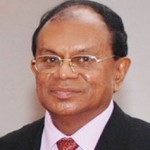More Q&A On Devolution & Constitution Making

By Laksiri Fernando –June 13, 2016
Addressing the question of devolution undoubtedly might be the most controversial among the constitutional issues facing Sri Lanka today. There are both ‘pull and push’ factors in operation dividing the people and political parties, on ethnic and other grounds. As a follow up to the previous article on “Going Beyond the 13-A and Towards Cooperative Devolution” (8 May 2016) this is a further attempt to address some of the other key issues in the form of ‘questions and answers.’ The purpose is to deviate from abstract debates and bring some concrete substance to the discussions. While the attempt is to be brief, objective and detached as much as possible, the answers admittedly constitute the author’s personal opinions.
Question: What could be the ‘nature of the state’ in a new constitution? Is it possible not to write about it?
Answer: A constitution can be silent on the nature of the state. That can seemingly prevent a controversy. For example, the Soulbury constitution (1947) did not characterize the nature of the state. But it was a unitary state. We have to keep in mind however that the Soulbury constitution was not designed for full independence. For a fully-fledged independent constitution the characterization of the state is important. That is what happened in 1972.
There can be a delicate difference between what is written in a constitution and the actual nature of the state. This is our situation at present. Present constitution characterizes the state as unitary. But after devolution, under the 13th Amendment (1987), in fact the character is not strictly unitary, but quasi-unitary. The constitution also names the state as ‘socialist.’ But we are no near socialism. There is no point in keeping it any longer.
We have a tradition of writing the constitution in a single document. There is no possibility of changing it. Writing the nature of the state is therefore almost unavoidable. The nature of the state however does not limit to the controversy over ‘unitary vs. federal.’ The nature of the state should be democratic. This is where we should pay more attention. Our society is also plural, multicultural and multi-religious. This should reflect in the constitution. That can address some of the controversial issues on ethnic and religious lines. It is best to incorporate the actual situation and actual interests.
Question: Is it possible then to avoid characterizing the state as unitary? What is the most realistic formulation?
Answer: There is a strong feeling that the unitary character of the state should be preserved. One reason is the experience of separatism. The enforcement of the unitary principle is considered as a guarantee to prevent separation.
On the other hand, those who want to drop the unitary characterization feel that it allows the central government to interfere unnecessarily in provincial matters. Therefore, the best or the rational compromise might be to ‘write the unitary character but qualify it.’ For example, in could be written “Sri Lanka is a unitary state with devolution of power to the nine provinces as prescribed in the constitution.” A ‘devolved unitary state’ is and might be the future situation.

